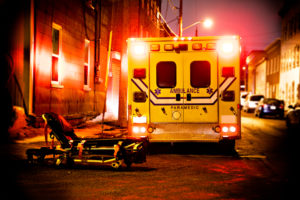As stated in a post earlier today, the NTSB usually gets information out to the public fairly quickly when dealing with accident investigations. Some of that information is in fact starting to come to light, including the fact that one of the car’s involved in the accident was past-due for a brake inspection.
The Washington Post is reporting the following:
The Metro train car that slammed into another on the Red Line yesterday evening was two months past due for scheduled maintenance on its brakes, and the car was an older model that federal officials had recommended be replaced because of concerns about its safety in a crash, officials said today.
The Post goes on to explain that
According to a Metro source knowledgeable about railcar maintenance, the first car of the striking train was two months behind on a scheduled maintenance for changing out brakes and brake components.
The New York Times is also reporting that the NTSB is trying to determine why the Metro computer system did not activate the brakes remotely, and also why Metro did not head certain warnings about the need to upgrade certain Metro cars:
The investigators said they first wanted to figure out why the moving train’s computer system, which among other things controls the brakes, apparently did not automatically engage just before the crash. They also raised concerns about why city officials had not heeded warnings from federal safety officials to replace older cars, like the one that caused the crash because they were not sufficiently crash-ready.
In fact, we are starting to see some very strong language from the NTSB regarding Metro’s failure to address certain dangers:
"We made recommendations in 2006 about the crash worthiness of the 1000 series cars," a National Transportation Safety Board spokeswoman, Debbie Hersman, said at a news conference Tuesday. Ms. Hersman said the federal safety board had recommended that the Washington Metropolitan Area Transit Authority, which run Metro’s rail and bus systems, “either retrofit those cars or phase them out of the fleet.”
“They have not been able to do that and our recommendation was not addressed,” Ms. Hersman said, She called Metro’s response to the recommendations as "unacceptable."
There is sure to be more and more information coming out in the next few days, but this is a troubling, and even infuriating, development. To think that three years ago warnings that could have prevented this accident were given and not acted upon is, quite frankly, upsetting.
Keep checking back for more information as this investigation unfolds.
@thumbnail.jpg)
Both an Emory School of Law graduate and MBA graduate of Goizueta Business School at Emory, Chris Nace focuses his practice on areas of medical malpractice, drug and product liability, motor vehicle accidents, wrongful death, employment discrimination and other negligence and personal injury matters.










Comments for this article are closed.